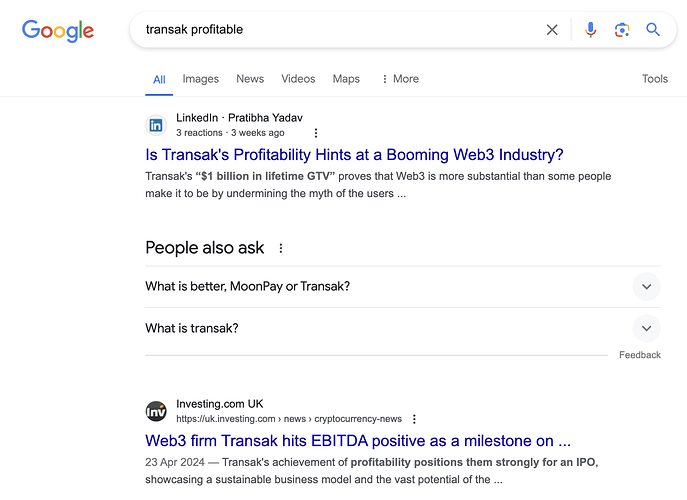I  support this idea, it makes so much sense…
support this idea, it makes so much sense…
I’ve literally suggested (talk is cheap, show me the code) it some time ago and I’m so happy that you have the code up and running.
Sybil resistance
Note that long-term using a payment card is good as unique data point for normies without on-chain history and without connecting loads of social accounts.
Payment provider / onramp
Onramper is hard to work
Shoutout to Guardarian/ChangeNow for working well so far
users send fiat, then we convert that into crypto for them with a trusted solution that works consistently.
- Does Stripe supports that?
- Do you have legal entity?
- Do you have money transmitting / brokering licenses?
About the Web2 to Web3 onramp, recently they were in the press - https://transak.com/ - announcing profitability for crypto company? Rare in this space, with such an ability to execute they are here to stay:
